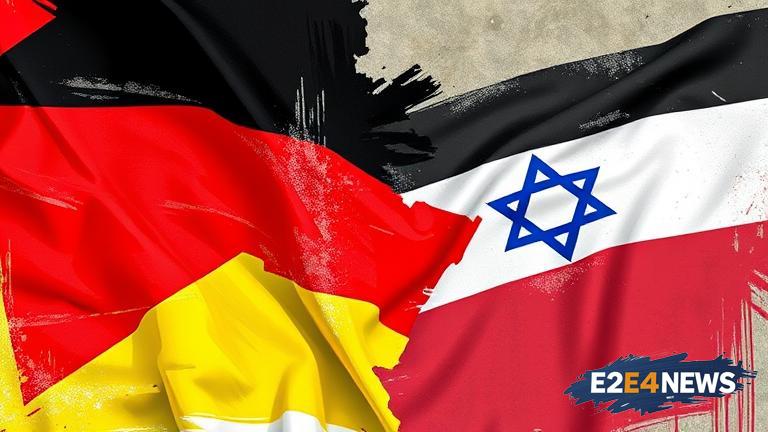Germany’s decision not to recognize Palestine as a state has sparked controversy and debate among its international allies. The announcement was made by Foreign Minister Annalena Baerbock, who stated that Germany’s position on the matter remains unchanged. This move has been seen as a departure from the stance of several European countries, including Sweden, Ireland, and Belgium, which have all recognized Palestine as a state in recent years. The Israeli-Palestinian conflict has been a longstanding and complex issue, with both sides claiming sovereignty over the same territory. Germany’s refusal to recognize Palestine as a state has been met with criticism from Palestinian officials, who argue that it undermines their right to self-determination. The German government has cited concerns over the potential consequences of recognition, including the impact on the peace process and the need for a negotiated settlement between Israel and Palestine. However, proponents of recognition argue that it is a necessary step towards achieving a two-state solution and ending the occupation. The European Union has been divided on the issue, with some member states recognizing Palestine and others, like Germany, refusing to do so. The United States has also been critical of efforts to recognize Palestine, citing concerns over the potential impact on the peace process. Despite the controversy, several countries have recognized Palestine as a state, including the Vatican, which has been a long-time supporter of the Palestinian cause. The recognition of Palestine as a state has been seen as a way to promote peace and stability in the region, as well as to uphold international law and the rights of the Palestinian people. However, the issue remains highly contentious, with both sides dug in and refusing to budge. The German government’s decision has been seen as a missed opportunity to promote peace and stability in the region. The Palestinian Authority has been seeking recognition as a state from the international community, and has been recognized by over 130 countries. The Israeli government has been opposed to recognition, arguing that it would undermine the peace process and create a precedent for other territories to seek independence. The conflict between Israel and Palestine has been ongoing for decades, with both sides suffering heavy losses. The international community has been calling for a negotiated settlement, but a lasting peace has yet to be achieved. The recognition of Palestine as a state has been seen as a way to promote peace and stability in the region, but it remains a highly contentious issue. The German government’s decision has been met with criticism from human rights groups, who argue that it undermines the rights of the Palestinian people. The issue is likely to continue to be a source of controversy and debate in the coming months and years. The international community will be watching closely to see how the situation develops, and whether a lasting peace can be achieved. The recognition of Palestine as a state is a complex issue, with both sides presenting strong arguments. However, the need for a negotiated settlement and a lasting peace is clear. The German government’s decision has been seen as a setback for the Palestinian cause, but it is not the end of the road. The Palestinian people will continue to seek recognition and self-determination, and the international community will continue to play a crucial role in promoting peace and stability in the region.
